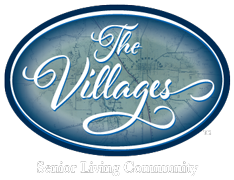Caring for a loved one with memory loss can be both an act of devotion and a daily challenge. If you’re considering a memory care community, you’re likely asking: What will life look like there? Who will be caring for my loved one? Will they feel safe, known, and engaged?
Here are some key aspects you can often expect from a memory care community:
- Caregivers with specialized training
- A safe, secure environment designed for comfort
- Opportunities for community and social engagement
- Ongoing connections and involvement with family members
Learning more about what to expect can help you make a confident, informed choice that supports dignity and quality of life.
What Is Memory Care?
Memory care is a specialized form of senior living designed for people experiencing cognitive decline, including Alzheimer’s disease and other types of dementia. These communities provide structured routines, sensory-friendly spaces, and purposeful activities that support memory, reduce anxiety, and encourage independence where possible.
The goal is simple and profound: help residents feel safe, connected, and respected while receiving the care they need. This happens by:
- Serving individuals with Alzheimer’s and other dementias
- Offering environments and programming tailored to cognitive changes
- Focusing on comfort, routine, and meaningful engagement
Daily Life Inside a Memory Care Community
Daily life is structured yet flexible, built around rhythms that comfort rather than overwhelm. You’ll often find:
- Morning routines with gentle prompts and personal care
- Chef-prepared meals served in calm dining rooms, with support for those who need it
- Cognitive and physical enrichment, such as music, pet therapy, art, chair fitness, and memory-stimulating games
- Quiet spaces for rest, along with secure courtyards for safe outdoor time
The aim is to spark joy and purpose throughout the day, whether that’s tending a garden, singing along to old favorites, or doing any familiar, soothing task.
A Dedicated Team
Care teams in memory care communities receive specialized training in dementia care techniques, including:
- Reading behavioral cues and responding with empathy
- Using redirection and validation to ease agitation
- Adapting communication to match each person’s abilities
In addition to daily support, caregivers monitor health, manage medications, and coordinate with outside providers. You can expect regular updates and care plan meetings, where the team shares observations and listens to family insights. This two-way partnership helps the care plan evolve as needs change.
Safety & Security
Safety is foundational in memory care. Communities are designed to prevent unsafe wandering and reduce risk, while preserving freedom and dignity. Common features include:
- Secured entrances and exits
- Door and window alarms
- Clearly marked pathways and visual cues to support wayfinding
- Thoughtful lighting to reduce shadows and confusion, especially in the evening
Staff are trained to handle emergencies and de-escalate stressful moments, providing peace of mind for families. We also prioritize emotional safety. Predictable routines, warm décor, and familiar objects help reduce anxiety and create a true sense of home.

Community & Socialization
Humans need connection, and that doesn’t change with dementia. Social engagement helps reduce isolation, lift mood, and support cognitive function. Memory care communities foster connection through:
- Small-group activities tailored to abilities and interests
- Intergenerational programs, volunteer visits, and pet therapy
- Music, art, storytelling, and reminiscence circles that invite participation without pressure
Residents can bond over shared experiences—like classic movies, local history, or favorite recipes—building a comforting sense of belonging.
Staying Connected as a Family
Your role remains essential. Some communities encourage regular visits, mealtime drop-ins, and attendance at events. Technology helps bridge distance: video calls, photo-sharing apps, and digital message boards keep you in the loop between visits. Families can stay involved by:
- Setting a consistent visit rhythm that works for your loved one’s best time of day.
- Sharing life updates through photos and short videos.
- Joining care plan meetings and sharing observations that can improve daily routines.
Families who stay connected often see smoother transitions and more meaningful moments together.
The Benefits of Memory Care
When the fit is right, memory care can be life-changing for both residents and families. You may notice:
- Reduced anxiety thanks to consistent routines and supportive environments.
- Improved safety with gentle oversight and secure design.
- More engagement through tailored activities that meet residents where they are.
- Relief for family caregivers, who can shift from managing every task to enjoying quality time again.
Most importantly, memory care honors the person behind the diagnosis. It creates room for dignity, purpose, and joy—even as needs evolve.
How to Select the Right Memory Care Community
Choosing the right place takes careful research and an in-person tour. Start by listing what matters most: proximity to family, medical support, cultural fit, budget, and amenities. During tours, ask questions like:
- What dementia-specific training do team members receive, and how often?
- What are staff-to-resident ratios, especially on evenings and weekends?
- How are care plans personalized and updated?
- What enrichment programs are offered daily? How are activities adapted for different stages of dementia?
- How are safety features (secured doors, alarms) balanced with freedom of movement?
- How are meals handled for those with changing appetites or swallowing concerns?
- How does the community support family communication and visits?
Preparing for the Transition
A successful move begins with preparation and honest conversation. Bring key family members together to discuss the reasons for the transition, what to expect, and how everyone can support your loved one. When possible, involve your loved one in choices like room setup, favorite décor, and clothing.
Want More Information?
If you’re weighing your options and want to see what thoughtful memory care looks like in practice, schedule a visit with The Villages at Murfreesboro. Tour our community, meet our team, and experience the calm, secure environment that helps our residents feel at home.
Reach out today to plan your visit and get personalized guidance for your loved one’s next chapter.



